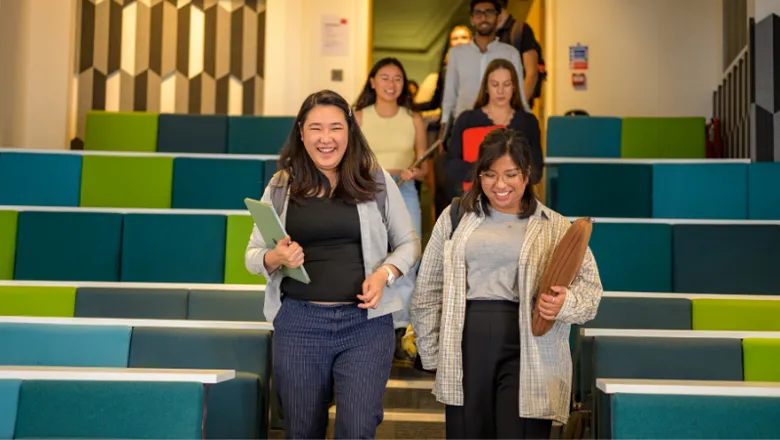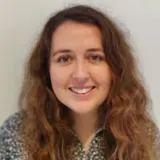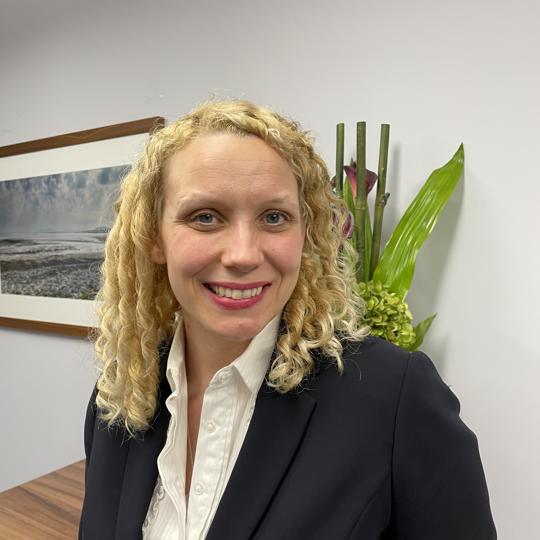“I wanted to apply [to the Enrichment Scheme] to get experience working in a research environment outside of academia, especially with an institution that works closely with the government. I am interested in laws and regulations relating to AI and wanted to improve my skills of researching to guide policy makers. I am looking forward to training opportunities in this area.”
Madeleine Waller
22 November 2023
Turing Enrichment Scheme for PhD Researchers
Applications are now open. Hear from current and previous award holders from King’s College London

Applications for The Alan Turing Institute’s prestigious PhD Enrichment Scheme Placement Award are now open, closing on Wednesday 17 January 2024. The award is aimed at PhD students who will be in their second or third year of the PhD in the 24-25 academic year, but there is no restriction on which discipline researchers come from.
The scheme is designed to give PhD students the opportunity to enhance and broaden their research through engagement with the Turing’s community, and provides the opportunity for them to find and recognise their place within the UK’s growing data science and AI research community.
Why apply?
We spoke to two King’s PhD students who are involved in the scheme and asked them why they decided to apply.
Madeleine Waller, who is based in the UKRI CDT for Safe and Trusted AI in the Faculty of Natural, Mathematical & Engineering Sciences, started her Enrichment Placement in October 2023:
Cari Hyde-Vaamonde, who is based in the Dickson Poon School of Law, undertook her placement from October 2022-September 2023:
“Once I started my PhD I was aware of the great work being done at the Turing and therefore wanted to work out how I could be more involved. [Through taking part in a Data Study Group] I had a taste of the inclusive atmosphere that the Turing provides and how this ultimately aids problem solving and possibilities for interdisciplinary work. I wanted to foster further connections with people across disciplines and work with people at the forefront of the field. I wanted to grow as an independent researcher and improve my skills. I saw the Alan Turing Institute as the best place to do this.”
Cari Hyde-Vaamonde
We asked Cari what she saw as the main benefits she received from taking part in the scheme. She told us there were many, including:
- Public engagement: Cari took part in a stand-up comedy event, where she spoke about her research alongside other Turing academics
- Outputs: Cari was involved with The Turing Way, an opportunity to share aspects of your research in an open and accessible format
- Skills: Cari had the opportunity to gain technical skills such as coding alongside taking the AI Educators course which connected her with educators across the UK
- Connections: Cari made connections with researchers working in AI through attendance at various events arranged by the Turing.
We asked Madeleine and Cari their advice for PhD students hoping to apply to the scheme. Madeleine told us:
“When writing my application for the scheme, I focused on what the Turing could provide me to enhance the skills needed to be able to reach my career aims. I also gave very specific examples of projects I am interested in. I emphasised the societal importance of my research and linked it to the Turing’s own aims.”
Cari said:
“Read the call document extremely thoroughly. Think carefully about how the aims of the scheme support your aims for the PhD. Explain your project to people from multiple disciplines in preparation, as your application will be read by non-specialists. [I’d say that] seeking guidance from other academics is always worthwhile.
“Look at the special interest groups, they will allow you to connect with others with similar interests. As an applicant from a non-STEM discipline, I had to emphasise how I would adapt to an environment that has a largely technical basis, my willingness to learn and broaden my skills. But do not assume that everyone at the Turing can code, there are plenty who do not. It is this very diversity that gives it strength. A willingness to learn is more important than proven excellence in coding. Do not underestimate the social aspect and what you can bring to this vibrant environment.”
Overview of the scheme
The Enrichment Scheme Placement Award offers students the opportunity to undertake a six- or nine-month placement at the Turing HQ, based in The British Library in London. Award holders will receive:
- A financial award per month to facilitate relocation or commuting to Turing’s HQ. The amount awarded varies dependent on your location
- £1000 Enrichment Training Support Expenses Fund to support activities relevant to the development of your PhD (e.g., conference participation, online courses)
- Induction to the Turing community and access to training events
- Access to a range of events, seminars, reading groups, and workshops delivered by leaders in research, government, and industry
- Opportunities to collaborate on Turing research projects
- High spec laptop for the duration of your placement and ability to apply for other Turing computing resources
Award holders will be able to build communities in the field and join other activities such as training courses, conferences, and visiting other researchers.
To find out more about the scheme and the application process you can register now to attend a webinar to be held by the Turing on Friday 1 December 2023.
Applicants must have the support of their supervisor. For advice on preparing your application you can access these slides from a previous Turing Enrichment Scheme event.
If you have any questions about the scheme or the application process you can get in touch with Catherine Healy, Turing Partnership Manager, at catherine.healy@kcl.ac.uk.



